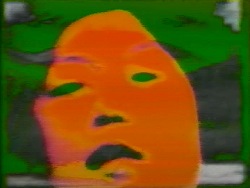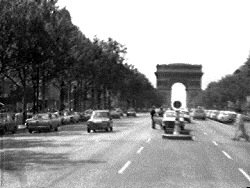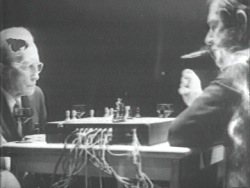
SHIGEKO KUBOTA
EARLY VIDEO WORKS
SHIGEKO KUBOTA
EARLY VIDEO WORKS
X Initiative
548 West 22nd Street, Ground Floor
New York, NY 10011
Wednesday - Sunday, 11 am - 6 pm
SHIGEKO KUBOTA
EARLY VIDEO WORKS
X Initiative
548 West 22nd Street, Ground Floor
New York, NY 10011
Wednesday - Sunday, 11 am - 6 pm
SHIGEKO KUBOTA
EARLY VIDEO WORKS
X Initiative
548 West 22nd Street, Ground Floor
New York, NY 10011
Wednesday - Sunday, 11 am - 6 pm
Works
This early video document is Kubota's answer to the question, "What happens if you travel with a portapak instead of American Express through Europe?" Spontaneous, low-tech and infused with a spirit of uncensored adventure, Kubota's video travel diary is a personal and cultural time capsule of...
In elegiac work, Kubota explores the relationship between two of the most influential figures in 20th century art and music. The core images are Kubota's own photographs of the famous chess match between Duchamp and Cage in 1968, in which the board, wired for sound, functioned as a musical instrument. Recordings of Cage's compositions accompany the stills and video footage, which Kubota electronically processes to abstraction.
Kubota narrates this surrealistic video diary of her month-long sojourn with a Navajo family on a reservation in Chinle, Arizona. She talks to the women as they cross the desert in a horse-drawn carriage to fetch water from the nearest well, and captures footage of tribal songs and dances, children's pranks and a local rodeo. Despite the language barrier between the Japanese Kubota and the English-speaking Native Americans, the artist befriends her subjects through sheer force of personality. Kubota relates to her subjects less like a documentary observer and more like a distant relative, with humor and affection.

